10 Important Things To Do During Ship Collision Accident
Even with the latest developments in navigational equipment and communication systems, collision accidents between ships continue to occur around the world. Some of the main reasons for such accidents are negligence, incompetence and miscommunication.
Ship Collision just do not leave the ships damaged; they can also lead to major pollutions and claim several innocent lives. Not to forget the ill fated ferry MV Dona PAZ, a Philippine registered passenger ferry, that collided with MT Vector an oil tanker on 20th December 1987 and killed 4386 lives including 11 crew members from MT vector.
Considering the vulnerability of such situation mentioned below are important points to consider when a vessel meets with such unfortunate emergency .
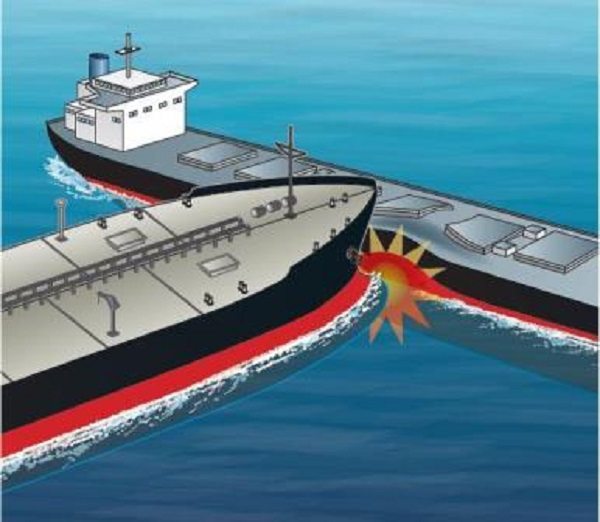
Note: It should be understood that the following points are just for the purpose of guidance, and during a real situation, one’s knowledge, seamanship and personal competence come in to play in handling the situation and saving lives.
1. Inform the Master and Engine room: This is obvious, but make sure you inform the Master, if he is not on bridge. Inform the engine room and stop the engine. The officer on watch should not hesitate to call the master even if he has the slightest doubt about any given situation. (The decision to stop the engine would depend on the severity of the accident and immediate action to be taken.)
Master’s experience, knowledge and his overriding authority helps in making quick and bold decisions to save lives. Once the master takes over the command of the situation, act on his orders. Mark the position of collision on chart or by pressing the mob button on GPS for future reference. Exhibit NOT UNDER COMMAND (NUC) signal if the ship has lost its headway completely.
2. Immediately Send Distress Signal: Send designated or undesignated distress messages through VHF ,MF/HF, SAT C or any other available means, depending on the sea area you are in and time limit you have. If you have enough time inform the company and the nearest coast radio station about the incident.
3. Record Important Data: Record the time of ship collision, name and IMO number of the vessel(s) you collided with. Waste no time in arguing with other vessel. Leave VHF channel 16 unoccupied, through which, you can get necessary information regarding assistance and help if the situation demands. Use any other VHF channel for inter/intra ship communication. If possible, take a photograph of the collision from a secure location.
4. Sound the Alarms: Sound the general emergency alarm; general alarm signal is sounded as precaution. It should not be mistaken as a signal for abandoning the ship. Take attendance, if anybody is missing report the same to the master. Inform the officer responsible on muster station about the situation. Make arrangements, to search and find the missing person. The responsible officers and crew should lower the life boats up to embarkation deck and make all arrangements to abandon the vessel at quick notice. It should be noted that engine room should not be left unattended if the impact of collision is minimal, which do not need an immediate evacuation of the compartment. Also, the engine room in-charge should ensure all officers and crew working in the engine room are ready with their life jackets and TPA if immediate evacuation is required in the later stages.
5. Assess the Damage: Send an officer responsible to the area where the vessels have taken the impact. Inquire about the percentage of damage occurred. If the damaged area is an enclosed space, ensure to take all necessary precautions, for enclosed space entry. Make an assessment of the damage and report the same to master. Any decision should be taken by the master or if the master is incapable of making decision or carry out his duties, the person next to his command should do so.
6. Take the Soundings: Send crew to take sounding of all ballast tanks, fresh water tanks, and wing tanks. Give instruction to engine room to take sounding of all tanks in engine room. All tanks soundings are to be taken and recorded, because the tanks far away from the impact can experience damage or crack due the shock created by the collision. Record the sounding of all tanks and compare it with the previous sounding data. If there is any change in the sounding, there can be a crack or a hole in the tank. The sounding of the particular tank or tanks should be monitored carefully and the rate of increase or decrease in water should be calculated.
7. Take Immediate Action In Case of Damage: If any tank or tanks appeared to have suffered damage and ingress of water is confirmed, make necessary arrangements to pump out the water. If the pumps are not effective and cannot contain the ingress of water the whole compartment can be sealed preventing other compartments from being flooded. If a self- closing water tight door is provided, it should be operated from the bridge itself.
8. Check For Oil Spill: If any of the fuel tanks or oil tank is damaged and if there is imminent danger of oil spill. The procedures mentioned in SOPEP plan should be followed to contain the oil spill. Read : How to avoid oil spills on ships?
9. Reach The Nearest Port, If Possible: If the master attempts to correct adverse list or trim, he should consider the effects of shear force, bending movements, free surface effect when transferring liquids and blasting and de-blasting on the hull. If the own ship to be afloat without danger and engines are ready to maneuver, set course for the nearest port for repair. All the above mentioned duties have to be carried out in a very quick sequence and with utmost precision as collision can lead to other emergencies simultaneously.
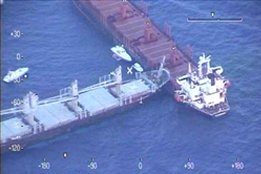
10. Abandon The Ship Only if Everything Else Fails: If the own vessel appears to be sinking and leaving no other choice except to abandon the vessel, it should be a verbal order from the master. It should be always kept in mind that a ship is the best lifeboat. The master and crew should always try and carry out all necessary means to keep it afloat. But once the decision is made to abandon the vessel, no time should be wasted. All crew should carry out their duties effectively and escape from the sinking ship as quickly and as far away as possible.
Read : Is abandoning the ship only resort in times of tragedy? and Responsibilities of master after abandoning the ship
Even with strict regulations for training and qualification of seafarers, many a time the crew gets panicked and forgets the duties during such emergency. Though it is easier said than done, the crew should be trained well on board by regular drills. They should be well informed about the use of life saving equipment and their operating procedures. If a new person joins the vessel, he should be well familiarized with vessels, emergency procedures, escape routes, location of life saving equipment etc. before the vessel leaves the port. Any emergency requires quick and prompt response from the crew and this can be only achieved by regular training and practice of such emergencies as mock drills.
The above mentioned is not an exhaustive list but a general overview of things that need to be done in case of collision accident. The points must be taken only as reference and one must always be guided by practices of good seamanship.
Do you have info to share with us ? Suggest a correction
Latest Shipboard Guidelines Articles You Would Like:
Subscribe To Our Newsletters
By subscribing, you agree to our Privacy Policy and may receive occasional deal communications; you can unsubscribe anytime.



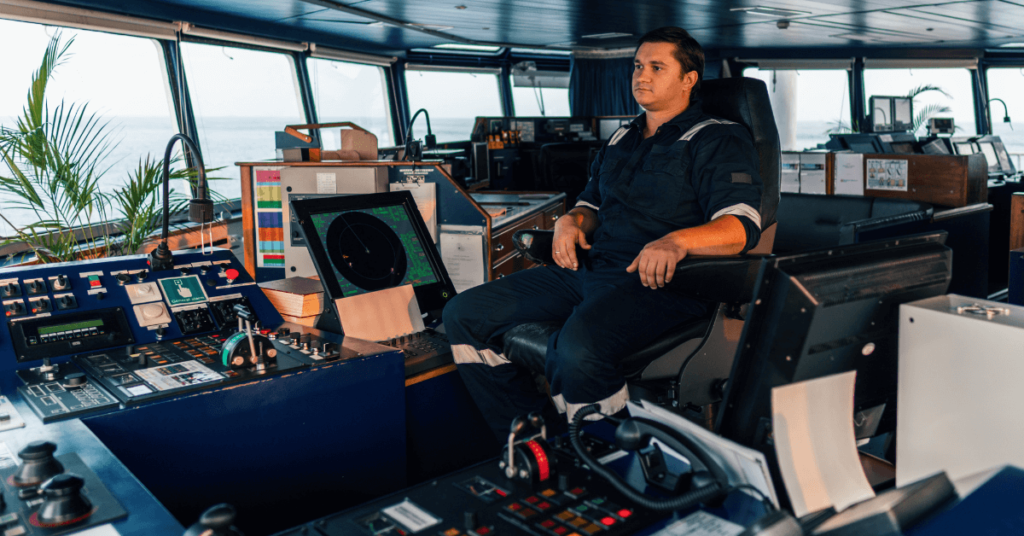
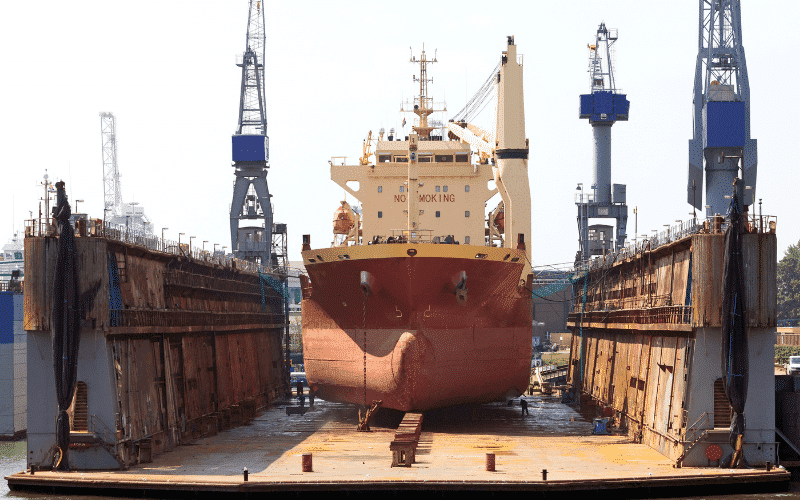

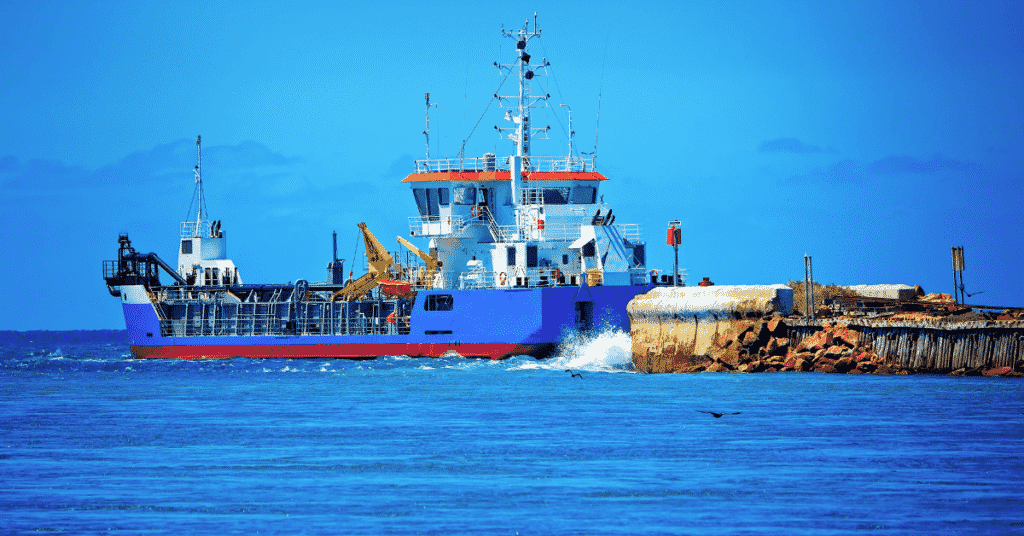
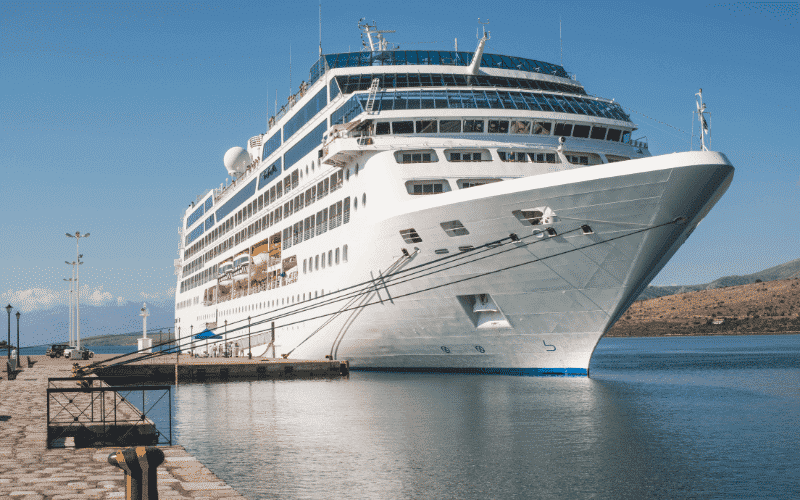
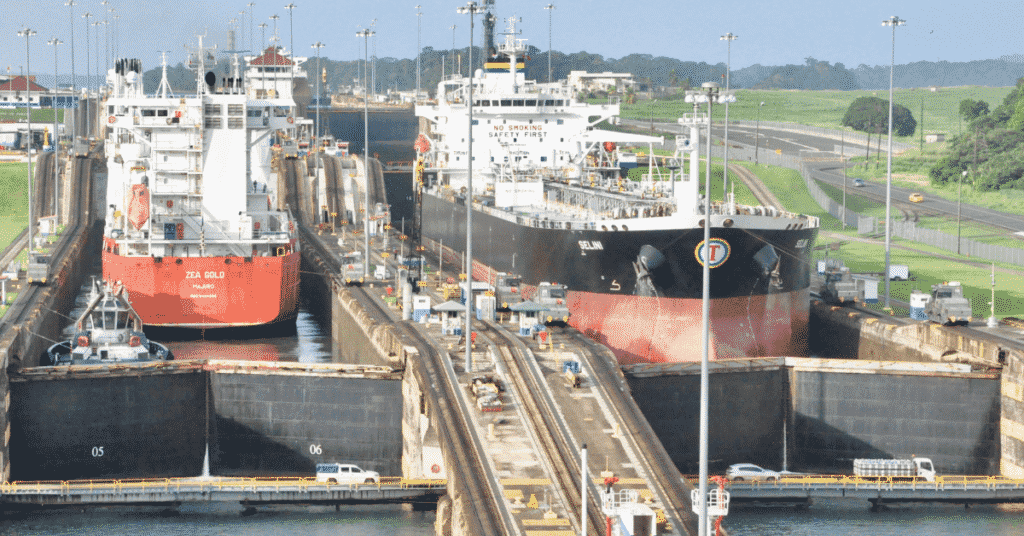

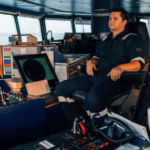
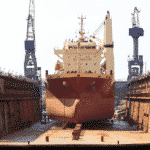

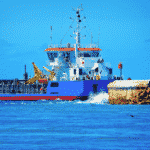
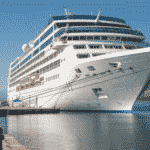
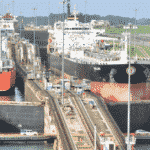
Based upon the title of the article I think that your entry at No. 4 “Sound the Alarms” should actually be the first item listed.
The formality of calling the vessel’s Master when collision is imminent is squandering time during which lives could be lost. The Master will hear the general alarm and then he or she will report to the bridge. The sounding of the alarm raises everyone’s awareness (those onboard your ship and possibly on nearby vessels as well) and starts the response action.
I always wanted my officers to call me if there was doubt or risk of collision but once the vessel is in a grave circumstance, aggressive action must be taken and calling the Master probably isn’t aggressive enough.
Thanks a lot for the inputs sir. However, the points haven’t been listed on the basis of priority but includes all the important ones that should be considered. Let us know if we are missing anything, we would add it to the list. Thank you.
In the “3. Recond Important Data” you did not mention that right after a collision (or any other accident) the master or another person in charge should save the data of the VDR in the hard disk or to another removable unit (depending upon the VDR or S-VDR model installed onboard). This data would allow the company to look more efficiently into the casualty and will support the Flag State in the technical enquiry that might be carried out in the afternmath of the collision, depending upon the severity of the event.
dear all,
it is good site for shipping and sea matters
thx
I like how you suggest sounding the general emergency alarm; a general alarm signal is sounded as a precaution when you get involved in a boat or ship accident. My cousin had a boat accident where another boat hit him and now he does not want to pay for the damages. I will recommend my cousin to contact a boat accident lawyer so he can get better assistance.